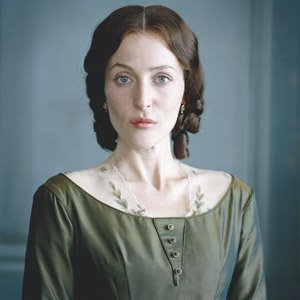Taken from
Salon article, by Erica Jong
"A book lives longer than a girl," Vladimir Nabokov said, lecturing to his Cornell students about Flaubert's "Madame Bovary" in the 1950s. He went on to praise the master's clinical style, the way he transformed the sordid materials of pulp fiction -- adultery, suicide -- into a poetic masterpiece by his painstaking description of bourgeois life in mid-19th century France.
"Madame Bovary" can be approached in many ways: as a notable banned book (like "Ulysses" or "Lolita"), as a book that delineates the confinement of the 19th century wife, as a book that influences subsequent development of the novel, even as a book that betrays the foot fetishism of the author. In "The Perpetual Orgy," Mario Vargas-Llosa's book about his passion for "Madame Bovary," Flaubert's erotic attachment to shoes and feet is detailed.
But what interests me most in "Madame Bovary" is the heroine's fondness for reading. She dies because she has attempted to make her life into a novel -- and it is the foolishness of that quest that Flaubert's clinical style mocks.
A novelist mocking a heroine besotted by novels? Then this must be a writer mocking himself! And indeed, Flaubert memorably said that he had drawn Madame Bovary from life -- and after himself. "I have dissected myself to the quick," he wrote.
Emma Bovary is deluded by literature. Because she is in search of ecstasy and transcendence, she falls madly in love with a cad, then with a coward, ignoring the plodding husband and child who both adore her. She is looking for a higher, more spiritual life than the one available to her as the wife of a bourgeois country doctor, and in this quest she finds only self-destruction. We identify with her because we too look to fantasy for salvation. If Emma Bovary, with all her self-delusion, still stirs our hearts, it is because she wants something authentic and important: for her life to have meaning, for her life to bring transcendence.
"In 'Madame Bovary,'" says Vargas-Llosa, "we see the first signs of alienation that a century later will take hold of men and women in industrial societies (the women above all, owing to the life they are obliged to live): consumption as an outlet for anxiety, the attempt to people with objects the emptiness that modern life has made a permanent feature of the existence of the individual. Emma's drama is the gap between illusion and reality, the distance between desire and its fulfillment. On two occasions she is persuaded that adultery can give her the splendid life that her imagination strains toward, and both times she is left feeling 'bitterly disappointed.'"
Perhaps we identify with Emma because we too feel an emptiness at the center of things -- an emptiness we try to fill with books, with fantasies, with sex, with things. Her yearning is nothing more or less than the human condition in the modern world. Her search for ecstasy is ours. "One way of tolerating existence is to lose oneself in literature as in a perpetual orgy," Flaubert wrote in 1858. If "Madame Bovary" can still move us all these years later, it is because she was both Flaubert's refuge -- and his self-portrait.
Sept. 15, 1997
 Amy Goodman Interviews Arundhati Roy. On AlterNet
Amy Goodman Interviews Arundhati Roy. On AlterNet

